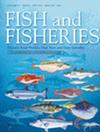Unveiling Gender Disparities: The Role of Women in Transforming Small‐Scale Fisheries
IF 6.1
1区 农林科学
Q1 FISHERIES
引用次数: 0
Abstract
Issues of equity and social justice have never been more urgent than they are today, as global social disparity continues to rise. The small‐scale fisheries (SSF) sector, long neglected by top‐down policies and mainstream markets, remains essential to the livelihoods of millions worldwide. In this context, equity challenges are particularly pressing. This study examines Brazil's SSF sector, focusing on gender dynamics and disparities. Home to the largest SSF population in the Americas, Brazil ranks among the top countries globally in fisherwomen—with nearly 900,000 women engaged in the sector, representing half of its SSF workforce. Despite their numbers and contributions to sustainable practices, such as low bycatch rates and minimal fuel usage, fisherwomen consistently earn less than men and are largely overlooked in social protection policies. Our analysis reveals a historical and persistent underrepresentation in policy, fishery‐dependent research, and social science, culminating in legal and economic imbalances—particularly in regions where fisherwomen form the majority, such as the North and Northeast. This results in reduced access to fisheries‐derived income and management benefits compared to fishermen. Moreover, fisherwomen remain underrepresented in decision‐making processes, despite their work aligning with key Sustainable Development Goals, including poverty reduction, gender equality, and sustainable resource management. This study offers recommendations beyond policy, including capacity‐building initiatives and implementation of gender‐disaggregated data systems to advance equity and social justice for Brazilian fisherwomen, providing a potential model for nations facing similar socio‐environmental challenges. It aims to catalyse global dialogue and inclusive reforms that recognise, protect, and empower women in small‐scale fisheries.揭示性别差异:妇女在小规模渔业转型中的作用
随着全球社会差距继续扩大,公平和社会正义问题从未像今天这样紧迫。小规模渔业部门长期被自上而下的政策和主流市场所忽视,但对全球数百万人的生计仍然至关重要。在此背景下,公平的挑战尤为紧迫。本研究考察了巴西社会保障基金部门,重点关注性别动态和差异。巴西拥有美洲最大的渔业人口,也是全球女性渔民数量最多的国家之一,有近90万女性从事渔业工作,占其渔业劳动力的一半。尽管她们人数众多,并对可持续做法做出了贡献,例如副渔获率低和燃料使用量少,但妇女渔民的收入始终低于男子,在社会保护政策中基本上被忽视。我们的分析表明,在政策、渔业相关研究和社会科学领域,女性的代表性一直不足,最终导致法律和经济失衡,特别是在北部和东北部等渔民女性占多数的地区。与渔民相比,这导致获得渔业收入和管理效益的机会减少。此外,尽管渔民妇女的工作符合减贫、性别平等和可持续资源管理等关键可持续发展目标,但她们在决策过程中的代表性仍然不足。本研究提出了政策以外的建议,包括能力建设倡议和实施按性别分类的数据系统,以促进巴西渔民妇女的公平和社会正义,为面临类似社会环境挑战的国家提供了一个潜在的模式。它旨在促进全球对话和包容性改革,以承认、保护和增强小规模渔业妇女的权能。
本文章由计算机程序翻译,如有差异,请以英文原文为准。
求助全文
约1分钟内获得全文
求助全文
来源期刊

Fish and Fisheries
农林科学-渔业
CiteScore
12.80
自引率
6.00%
发文量
83
期刊介绍:
Fish and Fisheries adopts a broad, interdisciplinary approach to the subject of fish biology and fisheries. It draws contributions in the form of major synoptic papers and syntheses or meta-analyses that lay out new approaches, re-examine existing findings, methods or theory, and discuss papers and commentaries from diverse areas. Focal areas include fish palaeontology, molecular biology and ecology, genetics, biochemistry, physiology, ecology, behaviour, evolutionary studies, conservation, assessment, population dynamics, mathematical modelling, ecosystem analysis and the social, economic and policy aspects of fisheries where they are grounded in a scientific approach. A paper in Fish and Fisheries must draw upon all key elements of the existing literature on a topic, normally have a broad geographic and/or taxonomic scope, and provide general points which make it compelling to a wide range of readers whatever their geographical location. So, in short, we aim to publish articles that make syntheses of old or synoptic, long-term or spatially widespread data, introduce or consolidate fresh concepts or theory, or, in the Ghoti section, briefly justify preliminary, new synoptic ideas. Please note that authors of submissions not meeting this mandate will be directed to the appropriate primary literature.
 求助内容:
求助内容: 应助结果提醒方式:
应助结果提醒方式:


